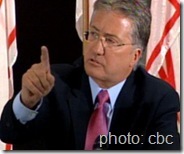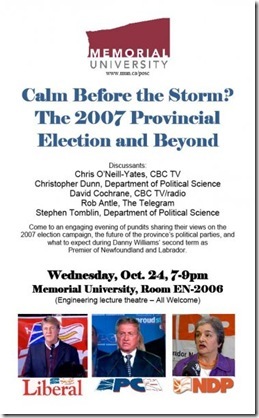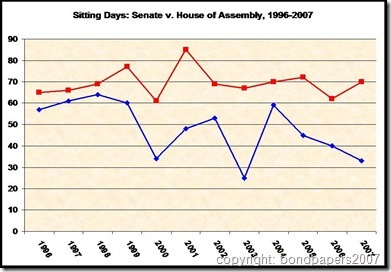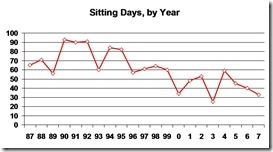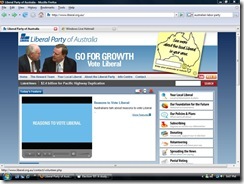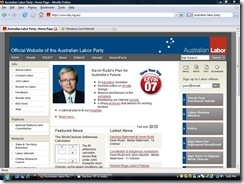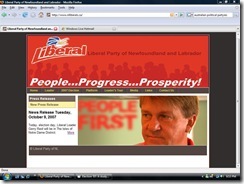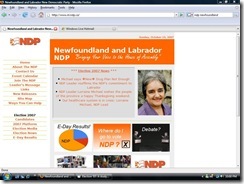Geoff Meeker raised a question this past week about the nature of election campaigns and media coverage. Specifically, Geoff took some exception to a comment by CBC provincial affairs reporter David Cochrane's comment that
The 21 or whatever days of the campaign is about working the phones, finding out who may vote for you, identifying them and then getting them out on voting day. It is a mechanical exercise with the air war of the leaders traveling around to give you a little bit of a bounce. But it’s an operational exercise more than a philosophical exercise.
Geoff then discussed media coverage during a campaign, arguing that news media should be adopting a somewhat critical posture during elections. As Geoff put it:
I think elections should be a time to ramp up the tough questioning of our politicians. Sure, send the reporters out on the hustings to tell us what the leaders are saying, and make hay when they screw up. That's part of the entertainment. But if that becomes the primary focus of our election coverage, something is wrong with the system.
Cochrane is right. During the 21 days or so of a campaign, the political parties ought to be focused on the essentially organizational exercise of finding the vote, fixing it in place and then firing it at the polls. Campaigning is a logistics problem in that it is basically about the marshalling of resources and managing their use. How the forces are deployed, how they are used and to what end is the strategic question but at the heart of strategy lies logistics. It is futile to develop a strategy calling for spending millions of dollars based on the deployment of hundreds and thousands of volunteers if either the cash nor the bodies exist.
This is not a deterministic argument. A comparative lack of resources does not equate to defeat, either in a specific battle or indeed even in a campaign, military or political. Misuse of resources, that is bad strategy, can and often does lead to defeat. What we saw in the recent provincial election was the result of both logistical differences among the parties as well as some pretty severe strategic errors. We also saw something that actually had nothing to do with logistics but rather another element of campaigns: will. This is where Cochrane's comment is wrong.
Politics is a clash of wills, a clash of ideas, supported by the clash of the machines. A candidate and a political party must want to win but there must be an idea that captivates the imagination or connects with the voters. Without a reason to vote, there would be only a handful of people trooping to the polling booth. Without the desire to campaign and to win, there is no hope of success for that party. There may be two competing wills engaged in the contest, and in that instance, the campaign will go to the one which better marshals and deploys its forces or which has the will to win. In western Labrador, the progressive Conservatives did not quit until the last ballot was in the last box; the new Democrats took the weekend off and effectively quit before they had finished. The stronger will won.
Similarly, as noted here, one of the most obvious things about the Liberal campaign was that the party - as a whole - had accepted defeat not at the start of the campaign but indeed weeks, months and possibly years beforehand. The outcome was only determined by the willingness of one party - in this case the Liberals - to accept the popular commentary that outcome was predetermined. Gerry Reid said as much in his concession speech. Compare that, however, to the British position in May 1940. Tossed off the continental by the Germans, her major ally defeated, and with few of its soldiers left outside German prison camps, Britain stood in a position where many countries had been before. Many countries had sued for peace. Many people expected the British to seek peace. The only thing that paved the way for the subsequent defeat of Germany at that point was the bull-headed determination of Winston Churchill not to accept the conventional wisdom.
Meeker is right here too, up to a point. Take a look at the CBC campaign blog and one finds a disturbing quantity of puffery, including the breathless references to Danny Williams being greeted like a rock star. The CBC is far from alone in this sort of superficial reporting, incidentally, but this sort of commentary - even if it didn't make it into the main stories - is surely an indication of the extent to which embedded reporters can become an integral part of the campaign which they are supposed to be covering at some distance removed:
I missed out on Fogo and Change Islands because there wasn't enough room on the chopper but my cameraman went along and shot what was some of the most interesting and confrontational tape of the week. People in both places had a long list of grievances to place at Williams's feet: the ferry service, outmigration, the hospital, and on it went.
'The hem of Williams's garment'
But Williams listened. His people took notes and promised to get back to people. But other than there and Goose Bay (disgruntlement over the Energy Plan is rife in Labrador) it was mostly about touching the hem of Williams's garment. There is no denying that the guy is popular. At times, it was like being on tour with Mick Jagger! I'm not kidding.
There is a lamentable tendency among news media to focus on the superficial aspects of politics. They will talk of polls and the horse race: who is ahead? Who is behind? is the Liberal campaign beset by a curse? Polls especially appear to the amateurs to be the essence of the campaign or indeed of politics itself. Which of the province's reporters - Cochrane included -has not spoken as if the CRA polls revealed the essence of all things political? In truth, those polls did no such thing. The Progressive Conservatives finished the current campaign with the same share of the total eligible vote as they did in 2003. The Tories won such a large number of seats this time around, not because they won the approval of the hosts forecast by CRA but because they held the singer and the Liberal vote never showed up at the polls.
CRA's poll results have indicated an apparent satisfaction level on some issues that were at odds with the overall impression. Newsrooms have an option to go with something other than the same pollster used by the government - either Liberal or Conservative - and yet for some inexplicable reason most do not.
Consider for a moment that in the recent campaign, reporters actually elected to rationalize - to explain away - what Danny Williams meant by the word "race" rather than simply ask him what he meant. The comment may have been meaningless but we will never know because the reporters in the room preferred to invent a meaning rather than ask a simple question. The Telegram gave front page prominence to a leak from the highest levels of the Tory campaign aimed at one candidate and yet a week later ignored the background to or implications of Tory claims about imminent bankruptcy contained in their attack on Gerry Reid's comment in Labrador. Did anyone consider checking the actual state of the province's finances?
In the final days, newsrooms ignored entirely Williams' sneering comment aimed at Ed Joyce and yet picked up on comments by the supporter of another party. This is nothing new; similar things occurred in 1996 or 1999 with another premier of another political stripe. There may well be aspects of the Liberal or new Democrat campaign that went unreported but that is really no excuse or balance. As Meeker rightly noted, newsrooms in this past election campaign didn't deploy resources to identify and report "inaccuracy, hypocrisy, blatant stupidity or deliberate untruth", irrespective of origin.
News media in the province - in general - have tended to focus on superficial aspects of politics over the past decade, much as their colleagues elsewhere have done. If anyone doubts the absence of distance - and its relative "skepticism" - consider that a year and a half later, that when it comes to spending scandal no one can say what politicians knew what, when and what they did or didn't do about it.
In a small media marketplace, the inclination of reporters should be to distance themselves from the subjects on whom they report. That distance will become more important to the public good in the next four years than it has been for quite some time.
-srbp-
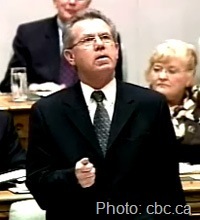
 The table - shamelessly lifted from
The table - shamelessly lifted from 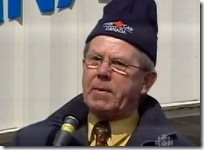

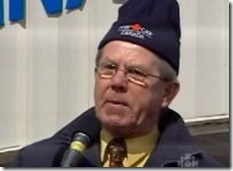 And while Danny is off having a bit of a lark, the province has been left in the hands of this man,
And while Danny is off having a bit of a lark, the province has been left in the hands of this man, 